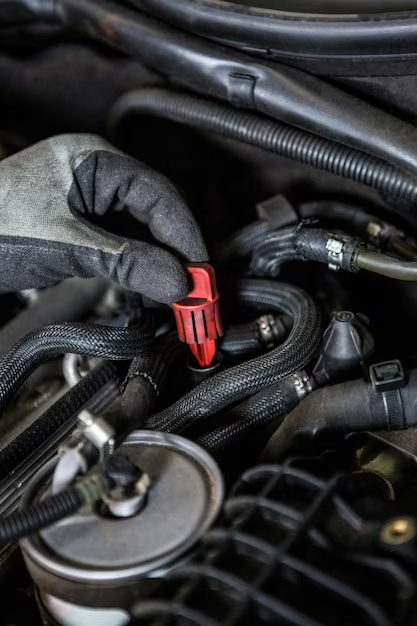The fuel pump plays a crucial role in supplying fuel to your vehicle’s engine, ensuring its proper functioning. A failing fuel pump can lead to various issues, including engine misfires, poor fuel efficiency, and ultimately, engine failure. Recognizing the warning signs of a failing fuel pump in your car is vital for South African car owners to avoid breakdowns and costly repairs. This article highlights the common warning signs that indicate a failing fuel pump and emphasizes the importance of prompt action to address the issue.
- Engine Stalling or Difficulty Starting
A failing fuel pump may cause intermittent engine stalling or difficulty starting your car. If you experience frequent engine stalls, particularly when accelerating or at higher speeds, it could be a sign of inadequate fuel supply. Similarly, if you notice your vehicle takes longer to start or requires multiple attempts to start the engine, it may indicate a fuel pump problem. These symptoms should not be ignored, as they can worsen over time and eventually result in a complete engine failure.
- Decreased Fuel Efficiency
A failing fuel pump can lead to decreased fuel efficiency in your car. If you find yourself needing to refuel more frequently, despite driving similar distances under normal conditions, it could indicate a fuel pump issue. A weakened or faulty fuel pump may not deliver fuel efficiently, causing increased fuel consumption. Monitoring your vehicle’s fuel efficiency can help identify potential fuel pump problems early on.
- Engine Surges or Hesitations
Erratic engine behavior, such as sudden surges or hesitations during acceleration, can be a warning sign of a failing fuel pump. If the fuel pump is unable to supply a consistent flow of fuel to the engine, it can result in engine performance issues. You may notice a lack of power or jerky movements while driving, especially when trying to accelerate. These symptoms require attention to avoid further damage to the engine and potential safety risks.
- Whining Noise from the Fuel Tank
A whining noise coming from the fuel tank area can be indicative of a failing fuel pump. As the pump deteriorates, it may produce unusual sounds due to mechanical wear or insufficient lubrication. Pay attention to any new or unusual noises, particularly when the engine is running or during acceleration. Although other factors can cause similar sounds, a whining noise accompanied by other fuel pump-related symptoms should not be overlooked.
- Sudden Loss of Power
If your car experiences a sudden loss of power while driving, it could be a result of a failing fuel pump. The fuel pump’s inability to provide a consistent fuel supply can lead to engine sputtering or even complete power loss. This can be dangerous, especially when driving on busy roads or highways. If you notice a sudden loss of power, pull over safely and seek professional assistance.
- Engine Overheating
A failing fuel pump can cause engine overheating, as insufficient fuel supply affects the cooling mechanisms. If you notice the temperature gauge rising above the normal range or the engine overheating warning light illuminating, it could indicate a fuel pump issue. Engine overheating can cause severe damage, so it is crucial to address the problem promptly to prevent further complications.
Recognizing the warning signs of a failing fuel pump in your car is essential for South African car owners. If you experience engine stalling, difficulty starting, decreased fuel efficiency, engine surges, unusual noises, sudden power loss, or engine overheating, it’s crucial to have your fuel pump inspected and repaired by a qualified mechanic. Ignoring fuel pump problems can lead to costly repairs, engine damage, or hazardous situations on the road. Taking prompt action will help ensure the continued performance and reliability of your vehicle in South Africa’s diverse driving conditions.











